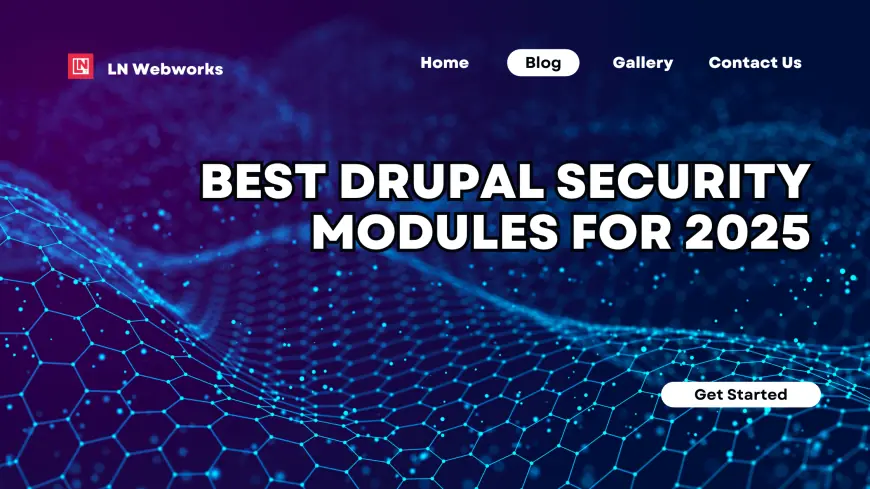Best Drupal Security Modules for 2025

When it comes to building a secure and robust website, Drupal remains one of the most trusted content management systems in the industry. However, even the most secure platform can benefit from additional safeguards. Drupal’s extensive library of contributed modules allows site owners to enhance security, protecting both their data and their users.
Here are the best Drupal security modules to consider for 2025:
1. Security Kit
Security Kit is a comprehensive module that provides tools to reduce the risks of web application vulnerabilities. It helps implement best practices for security headers, such as Content Security Policy (CSP) and X-Content-Type-Options, ensuring your website is protected against common attacks like cross-site scripting (XSS) and clickjacking.
2. Login Security
Managing login attempts and enforcing strong password policies is critical for website security. The Login Security module allows you to restrict access by IP address, limit failed login attempts, and configure secure login procedures. These features help prevent brute-force attacks and unauthorized access.
3. Two-factor Authentication (TFA)
In 2025, two-factor authentication remains a cornerstone of website security. The TFA module adds an extra layer of security by requiring users to verify their identity using a secondary method, such as an app-generated code or email verification. This significantly reduces the chances of account compromise.
4. Password Policy
The Password Policy module ensures users create strong, secure passwords by enforcing specific requirements such as length, complexity, and expiration. This module is indispensable for websites where user authentication is critical.
5. Captcha
To combat automated bots and spam, the Captcha module integrates challenge-response tests into your website’s forms. It’s a simple yet effective way to ensure that only human users can submit forms or perform actions on your site.
6. Honeypot
Honeypot is another great tool for thwarting spam bots. Unlike Captcha, it works invisibly by adding hidden form fields that only bots will interact with. This reduces friction for genuine users while keeping malicious bots at bay.
7. Security Review
Security Review is an essential module for identifying common configuration issues that might compromise your website’s security. With regular scans, this module highlights vulnerabilities and offers actionable recommendations to keep your Drupal site secure.
8. Advanced Security by Permissions
This module enables granular control over user permissions, ensuring that users only have access to features and data relevant to their roles. By minimizing unnecessary access, you’re reducing potential entry points for attackers.
9. Automated Updates
Keeping your site updated is one of the simplest yet most effective security practices. The Automated Updates module streamlines the process of applying core and module updates, ensuring you’re always running the latest, most secure version of Drupal.
10. Paranoia
For those who want to go the extra mile, the Paranoia module detects and blocks potential exploit attempts by disallowing unsafe PHP code execution and other risky actions. It’s a perfect choice for high-security environments.
Conclusion
With the ever-evolving cybersecurity landscape, securing your Drupal website in 2025 is not just a recommendation but a necessity. Integrating these powerful security modules will help fortify your website against threats while ensuring a safe user experience. At LN Webworks, we specialize in building and maintaining secure Drupal websites. If you’re looking for a trusted Drupal development company, we’re here to help you achieve your goals with confidence and reliability












